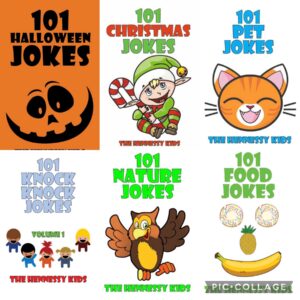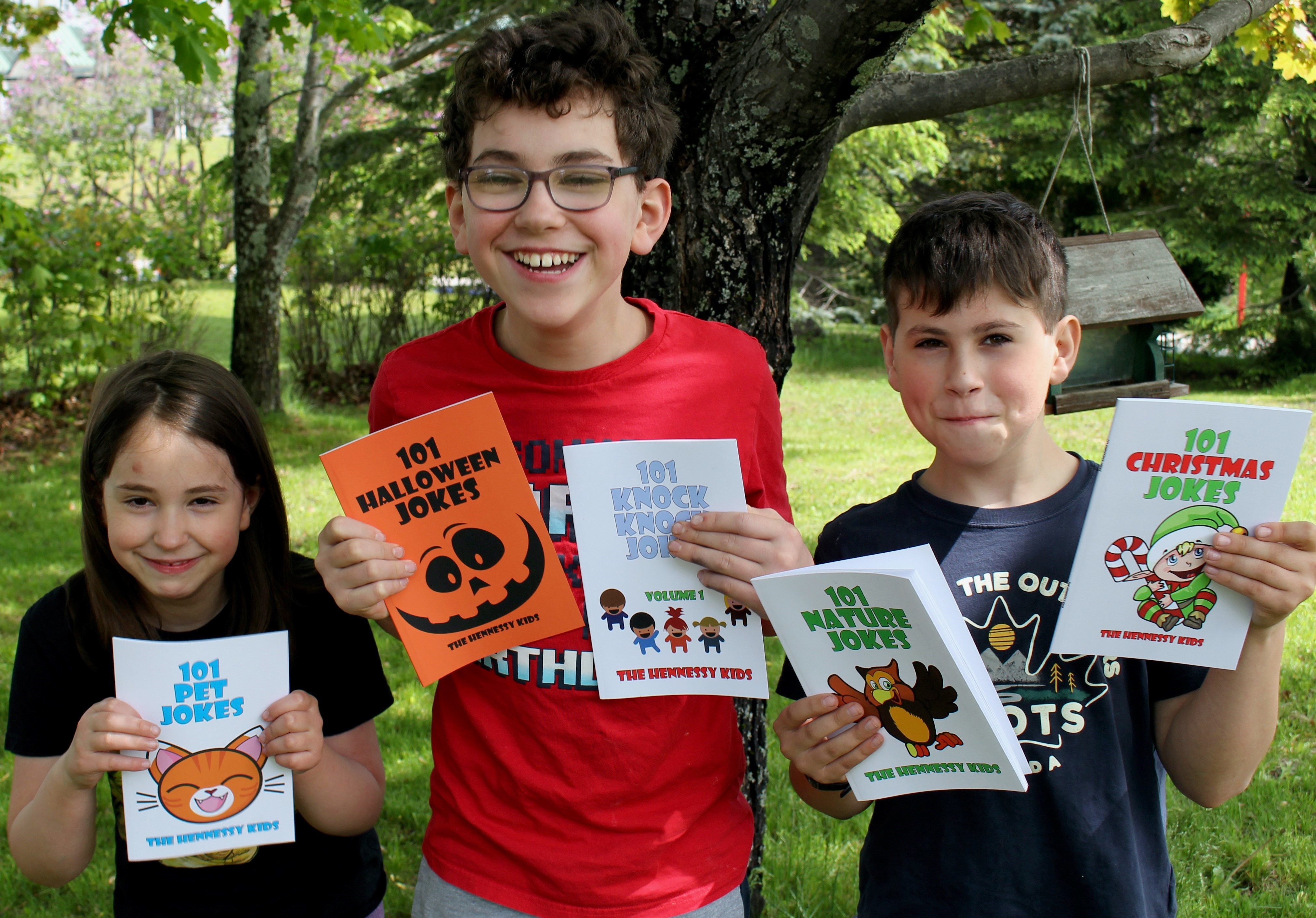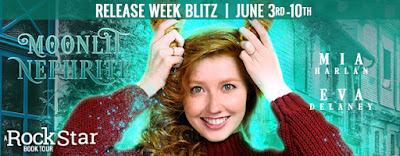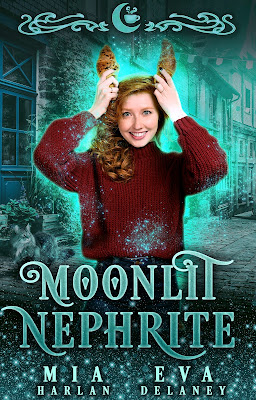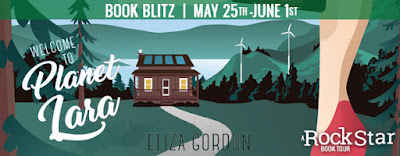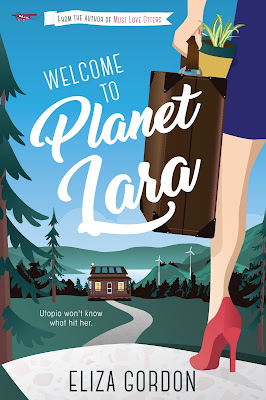I am so excited that WELCOME TO PLANET LARA by Eliza Gordon is available now and that I get to share the news!
If you haven’t yet heard about this wonderful book, be sure to check out all the details below.
This blitz also includes a giveaway for a signed finished copy of WELCOME TO PLANET LARA and a couple eBooks courtesy of Eliza and Rockstar Book Tours. So if you’d like a chance to win, enter in the Rafflecopter at the bottom of this post.
About The Book:
Title: WELCOME TO PLANET LARA
Author: Eliza Gordon
Pub. Date: April 8, 2021
Publisher: SGA Books
Pages: 412
Formats: Paperback, eBook
Find it: Goodreads,
Amazon, Kindle, B&N, iBooks,
Kobo, TBD, Bookshop.org
“There are … stipulations on your inheritance, Ms. Clarke.”
Lara J. Clarke is used to getting her own way. Motherless at ten and raised by her oft-absent
eco-warrior/philanthropist grandfather, she lives the high life afforded by her seemingly bottomless trust fund.
That is, until Grandfather Archibald sheds his mortal coil in a very public manner, and Lara’s privileged life is set adrift, headed for a collision course with the gorgeous, private Thalia Island off the coast of British Columbia. According to the will, Lara will step into the role of Project Administrator, wherein she has one year to fulfill her late grandfather’s dream of a self-sustaining, eco-friendly, family-centered utopia.
The stakes are real: fail, and lose access to the family fortune—forever.
Convinced Thalia Island will be an extension of the heiress lifestyle she’s long led, Lara is surprised to find her new coworkers—and neighbors—aren’t as pliable as the underlings of her former life. Even with the hunky lead engineer Finan Rowleigh showing her the ropes, Lara quickly learns just how unprepared she is to trade her Louboutins for steel-toed Timberlands.
When a series of calamities reveals a sinister element undermining the security of the island and her residents, Lara and Finan must reach beyond their job descriptions to protect Archibald’s precious utopia from those who would do her harm.
And while keeping her late grandfather’s flame alight, Lara finds her own flame burning hot for a charming, kind man who wants nothing from her but her heart.
Praise For WELCOME TO PLANET LARA:
♥
“Eliza Gordon delivers a unique premise, delicious romance, and plenty of intrigue. I loved it and can’t wait for more from Planet Lara!” — Samantha Young, NYT and USA Today bestselling author
♥ “Smart, hilarious, and completely unpredictable,
Welcome to Planet Lara is your next must-read. West Coast Canada Schitt’s Creek meets grown-up Nancy Drew for a riches-to-rags adventure filled with murder, romance, mystery, and a heroine you love to hate–until the moment you realize you just love her.”– Suzy Krause, author of Sorry I Missed You and Valencia & Valentine
♥ “I absolutely loved Welcome to Planet Lara! It made me feel all the feels … what a crazy ride! Eliza, once again, brings her characters
to life with humour, heart and realness. I loved every minute of it and did not want it to end! Cannot wait to find out what Eliza has in store for Lara.”– Brandee Bublé, children’s author (O’Shae the Octopus and Jayde the Jaybird)
♥ “I love it, and I CAN’T WAIT TO READ THE NEXT ONE. The concept is amazing, and the eco-message is so timely and very dear to my heart. [Eliza] has tackled so much, and done it with her usual spunk and zest.”– Stephania Schwartz, author and editor
Excerpt:
Chapter One
DEARLY BELOVED
I don’t know why they have pickles on this table. My mom hates pickles. Hated. Past tense. I heard Rupert correct my grandfather when he mentioned my mother the other day—they were talking in Grandfather’s huge office lined with bookshelves and Louis XV Savonnerie carpets and giant windows the housekeepers complain about cleaning when they don’t know anyone’s listening, and Rupert referred to my mother in past tense. I wasn’t supposed to hear their conversation—that’s why the outside door was closed. When it’s closed, I’m not allowed in. But I’m very good at hearing things I’m not supposed to hear because, like that kid in my class who always smells like wet dog says, I’m so scrawny, he could stuff me into his rolling backpack and throw me into the ocean and no one would ever miss me.
I’d like to think that someone would miss me. Only now that we’re speaking of my mother in past tense, I guess that’s one less person who would wonder if I’m floating out to sea, trapped in a rolling backpack covered in dog hair. Also, I’d like to think my English teacher, Mrs. Buck, would be proud of me for understanding the difference between present and past tense, even if her nylons on her beefy thighs scrape together when she walks between our desks and the sound makes me shiver.
Like I was saying, I’m scrawny, so two days ago, I snuck into my grandfather’s office and tucked myself into the antique liquor cabinet—he doesn’t drink so the cabinet is empty and the perfect place for me to hide when I don’t want his bossy housekeeper to find me because her job is to vacuum and change sheets and make Grandfather’s special food but now she keeps trying to hug me and pet my hair and her boobs squish my face and I can’t breathe, so she thinks I’m crying about my dead mom, my mom who’s only alive in the past tense now, but I’m not crying about my dead mom. I haven’t cried yet. I think that makes me the worst kid ever.
Yeah—I mean, yes, since Rupert won’t allow me to say yeah—so I was in the cabinet and I heard Rupert say we needed to refer to my mother, Cordelia Josephine Clarke, in the past tense. “It will be easier for Lara if we don’t give her hope that her mother will be returning.” Rupert—I call him Number Two, like that character in Austin Powers, a movie I wasn’t supposed to watch but did anyway because one of the housekeepers invited me to her daughter Madi’s ninth-birthday sleepover because she felt bad for me that I never get to go to sleepovers. So I went, and Madi is basically my best friend now, but the housekeeper and her husband drink a lot of wine that comes in a box and they play their country music really loud. The biggest difference from the Number Two in the movie and Rupert Bishop is that Rupert doesn’t have an eye patch and he hardly ever laughs or smiles and even if he does smile, he’s like a hundred feet tall so I can’t even see up to his unsmiling face most of the time.
“They didn’t find a body, Rupert. They found the wrecked plane, but no Cordelia. What if she made it? What if someone in that god-awful jungle has her?”
Through the slats in the square cupboard door, I saw Number Two shake his head and look down at his shiny brown loafers. One of these days, I’m going to take a black marker and color the tops of his shoes so he can’t shine them anymore. I’m also going to cut off those stupid tassels and use them as fishing lures.
“Sir, this is the best course. Do not cancel the memorial. Plant the tree, give Lara some closure. Let her move on. She’s only ten. Still young enough to have a satisfactory life wherein her memories will fade, even in the face of this tragedy. It’s not as though she’s spent a lot of time with her mother anyway.”
My grandfather’s face hardened for a minute, that look he gives when he’s about to blow his top, his chin jutting and eyes narrowed.
“Pardon me, sir. I overstepped.” Rupert folded his hands behind his back. He’s not wrong, though. My mother hasn’t been around for a long time. She works a lot, or so she says. When she’s home, it’s all fun, fun, fun, like she’s trying to make up for the next time she leaves a note on my nightstand covered with Xs and Os and smiley faces and promises of trips to zoos and museums and amusement parks and my favorite ice cream shop when she gets home.
Rupert told me once that my mother’s first love was her airplane. And even though she named it Lara, after me, I have always known that Lara the plane was more important to my mom than Lara the human kid.
My grandfather, unlike me, has cried a lot since the men in black suits showed up a week ago and asked for a place to talk privately. Rupert’s comment has made my grandfather cry again. Maybe I will forget coloring his shoes and just drop them all—his entire collection of fancy, tasseled loafers—into the pond in the back with the koi.
Cordelia was my grandfather’s only daughter. His only child, actually.
I am his only granddaughter.
Archibald Magnus Clarke the First, and only, was almost an old man when Cordelia was born. Her mother left her behind, just like Cordelia left me behind.
I haven’t cried yet. Maybe I will later.
But there are pickles on this big stupid table, and Cordelia hated pickles. And everyone in the room—all these faces I’ve never seen before—are looking at me like they’re expecting me to burst into tears at any moment.
Instead, I pick up the plate of pickles of all varieties and whistle once with my fingers tucked into my lips like Madi taught me. Once I’m sure I’ve got the room’s undivided attention, I launch the plate overhand, anticipating the satisfaction that will come when the glass hits the de Gournay papered wall and shatters into a thousand pieces and stinky pickle juice seeps across the bamboo floor and into the fibers of the eighteenth-century Persian rug we’re not supposed to wear our shoes on.
Except at the same moment, this tall, lanky kid steps into the plate’s trajectory and the heavy crystal hits him instead with a dull crack!
Everyone in the spacious, light-filled room gasps. The kid, stunned, looks in my direction, big brown eyes wide, not quite sure what just happened. And then blood spills down the side of his head and he slumps to the floor into the pile of pickles
and juice, followed by grown-ups freaking out and the big-boobed housekeeper barking orders at some other member of the house staff to get the first-aid kit and then Rupert’s bony but well-manicured hand is around my arm and he’s pulling me out of the solarium and forcing me down onto the soft, carpeted steps in the main foyer.
“What on earth possessed you to do that, young lady?”
I look up at him and am surprised when tears sting my eyeballs. I didn’t mean to hit that kid.
“My mother hates pickles. If any of you guys even knew her, you’d know she hates pickles.”
Past tense, Lara. Your mother hated pickles.
Rupert kneels, his joints cracking even though he’s not even that old.
A commotion behind us draws our attention. Two parents huddle around the tall boy who is again on his feet. They pause just long enough for me to look at the kid, a bloody cloth pressed against the left side of his head and face.
“Sorry,” I whisper.
He nods once, and they leave.
Then I start crying, and I don’t stop for a year.
Chapter Two
CUT THE RIBBON ALREADY
The cacophony pouring from the hastily constructed, oversized gazebo is the opposite of music. Maybe no one explained to Grandfather what marching bands are best at: marching. Instead, forty-odd adolescents, sweating under the hot lights in their full blue-and-white regalia, must rush out their Born to Run and Uptown Funk before they’re pushed off the stage, to be replaced with the real reason all these people are crowded into this shoreline park in their finest attire, their Jimmy Choos sinking into the sand, in front of a modest structure that promises the future is just inside its double glass doors.
A giant pair of silver scissors, cast from recycled car parts, sits on an equally giant velvet, bamboo-stuffed pillow atop a 3D-printed, biodegradable table made of cornstarch and wildflower seeds that will be left out in the inevitable spring rain to melt and blossom once the ceremony ends. The bold red ribbon stretched across the structure facade trembles at its proximity to the sharpened blades.
A trumpet misfires. The audio system roars with feedback. The impressive crowd groans and flinches. Dainty, bejeweled hands not holding champagne flutes cover delicate ears against the assault.
Thankfully, the song ends. Lukewarm applause plays the marching band off the gazebo, their noise replaced by the ambient serenade of whale song and falling rain pumped through the surround-sound speakers. It makes me need to pee.
“Canapé? It’s fresh, smoked wild Pacific salmon on artisan rye and topped with dill, all ingredients grown in one of Dr. Clarke’s self-sustaining vertical farms.”
“He grew the fish in one of his skyscrapers?”
The redheaded server looks confused. This information wasn’t included in the script his boss fed him before sending him out with a tray.
“I think the salmon came from the ocean?” His Adam’s apple bobs nervously. I should feel bad. Probably just a college kid trying to make tuition for next semester. Some people have to do that. He has no idea who I am. Or maybe he does, and that’s
why he’s sweating.
“Allergic to salmon,” I lie. “But I will take more bubbly.” He nods and hurries away, forgetting to hand out his canapés to the buffed-and-polished deep pockets around me.
“Do not treat the staff like they’re below you, Lara. You never know how quickly life can change. You might need the charity of others someday.”
Grandfather’s voice in my head worsens the martini headache that’s already trying to push my eyeballs out of their sockets. I wish Canapé Boy would hurry up with that champagne.
I’m supposed to be backstage with Grandfather’s entourage to wave at his adoring crowd and field the accolades that his years of scientific achievement and dedication to the environment and sustainability have birthed. Just waiting for Rupert’s hail, at which time I will slide in behind the crowd. I tried to decline—Dr. Archibald M. Clarke I is a big boy. He doesn’t need me standing up there with
him faking a smile while his offering plate is passed around. But Grandfather did say he thinks this will be his last public shindig, so I will obey, like a good little cyclone is supposed to.
My phone buzzes in my black clutch. It could be Connor texting to find me in the throng, although he wasn’t sure if he’d be wrapped in time to make it. Too bad. The Pacific Ocean looks beautiful from this very expensive patch of real estate. We could sneak off and get sand in our undies and hope that someone records it.
It’s not Connor.
Please join us. Rupert, a.k.a. Number Two, Grandfather’s steward, valet, assistant, his right-hand man in all things. Tall, pinched, British, and annoying.
Yes, sir.
He doesn’t respond. Rupert tolerates me only because he is paid to do so. The feeling is mutual.
I weave through the crowd, eyes seeing through everyone so no one stops me to ask for anything. Someone is always asking the Clarkes for something. And as I’m here solo tonight—my assistant, Olivia, had some other engagement, and Connor, well, who
knows—I have no one to run interference.
The sky purples as the sun dips a toe behind the horizon. While it’s unseasonably warm for April in Vancouver, the breeze coming off the water will soon see bare-shouldered partygoers pulling on wraps and accepting tuxedo jackets from their dates.
Canapé Boy passes with a tray of champagne, and I slow my momentum to lighten his load by two flutes. The pampered, overdone blond next to me tries, and fails, to furrow her brow. “Do you need both of those?” she asks. She looks like she French-kissed
a beehive.
I drink the first glass in one long pull, and then the second, never taking my eyes off her.
“Aaaahhhhh, Moët. Refreshing,” I say, handing the emptied glasses back to the sweating server.
“Bitch,” she growls.
I eye her augmented cleavage, one brow hiked dismissively. “Did you know the world’s oceans will have more plastic than fish by 2050?” I move on.
With the last body out of my way, I manage the four metal stairs, minding the hem of my dangerously short dress and hoping my calves look gorgeous in these Louboutin stilettos, to squeeze in behind the heavy green, rough-cotton drapery surrounding the stage. Grandfather stands in the center of his small crowd, like the nucleus of a comet, the source of all this light. I don’t like many people, but I adore my grandfather. And he knows it.
“Rupert,” I say, pushing in beside him.
“My Lara Jo is here,” Grandfather says, handing Rupert his custom, hand-carved cane so he can wrap his arms around me. The only hint that Archibald Clarke is ninety-four comes from his bent spine—and it’s only bent because he took a spill on his solar-powered bike in Toulouse on his eighty-eighth birthday, and the spine doc couldn’t do any better than the fusion that gave him the slight hunch. His brain is still sharp as a razor, his eyes as clear as a Caribbean lagoon.
Though there is the little issue of the dodgy pacemaker …
“Hey, old man, how are you tonight?”
He kisses the back of my hand and pinches my cheek. Same thing he’s done every day of my life. We remain with hands clasped—even though his is smaller and thinner than years past, I still feel safest when Archibald Clarke anchors me to shore—as Rupert and the stage manager whisper and nod about getting the next phase underway.
Number Two nods at us both, pats Grandfather’s shoulder, and steps out into the spotlight. The applause rolls over the audience, growing louder, punctuated with whoops and hollers.
“Showtime,” I mutter to Grandfather. He winks, winds my arm through his, and retakes his cane from one of the stage assistants. His face is a mask of friendly calm, and although I am used to eyes on me, this sort of occasion does make me nervous. I’m sure someone will find something to pick apart about my outfit or hair in time for WickedStepsister’s press deadline.
Rupert, center stage, unhooks and grasps the microphone like he’s going to bust into some Michael Bublé. I’m surprised Bublé isn’t here. He lives, like, a half hour away, the only person in the city who might be more famous and beloved than my grandfather.
With a raised, long-fingered hand most suited to piano scales and reprimands, Rupert calms the gathering. A few of his female admirers catcall from the area closest to the stage, followed by laughs. Joke’s on them. Rupert doesn’t have time for love and other nonsense, “and if I did, it wouldn’t involve vagina.”
His words, not mine, and only after an evening of Macallan “borrowed” from my teetotaler grandfather’s collection of gifts he’s never touched. It was one of three occasions in my life I remember Number Two behaving in a manner more akin to a real-live human than obedient robot.
“Welcome, everyone, to this glorious evening of celebration,” he starts. For approximately a million minutes, he extols the many virtues of my grandfather’s esteemed scientific career, his dedication to the people of Earth, his passion for sustainability, even when people have laughed him out of boardrooms for his crazy ideas, how he was Elon Musk before Elon was even a twinkle in his mother’s perfectly lined eye.
“But no one is laughing now, now that we stand on the brink of an unprecedented era, on the precipice of an irreversible tipping point. In answer, Dr. Clarke has gifted us with an invigorating new way to live sustainably and in harmony with Mother Nature and our fellow earthly cohabitants. Searching the stars for new homes is a fool’s errand, not when we have a beautiful home right here, crying for our help.”
I roll my eyes at Rupert’s melodrama and instantly regret it as a renewed surge of pain pings inside my dehydrated skull. I again promise myself I will never drink another martini as long as I live.
“You remember what I told you?” Grandfather leans over and asks under his minty breath.
“About what?”
“Everything.” He winks again. I kiss his cheek. I don’t know what he’s talking about, but I don’t have time to ask for clarification.
“And now, without further ado, I would be so very honored if you would join me in welcoming everyone’s favorite eco-warrior, the son of Gaia herself, Dr. Archibald Magnus Clarke!”
More applause, more whoops. As we walk to center stage, I spy a woman in the front row with tears streaming down her face.
Archibald M. Clarke is happy to take the tall stool Rupert slides behind him. I help him onto it, holding his cane. Under the lights, he looks tired—I know he’s been working around the clock to maintain his myriad projects and make sure they’re all ready to be managed by his crack crew of experts once he “abandons this mortal coil.” He’s tried to rope me into helping, but I won’t hear of him
leaving me, so no, Grandfather, leave me out of it and get back to work.
His speech continues on where Rupert’s left off. I stand next to him, his hand still clasped in mine, my obedient, grateful Clarke smile in place as he introduces me to his “friends.” I nod at the appropriate times, even if I’m mostly just scanning for the nearest champagne fountain. The crowd slurps up Grandfather’s words like that fresh, wild Pacific salmon still making its rounds.
“Enough about me,” Grandfather finally says, the onlookers oohing and aahing and clapping again. “Let us cut this ribbon and welcome our generous visitors to the presentation center for the Nature Tower, Vancouver’s first eco-cooperative, self-sustaining, family-friendly, mixed-use high-rise community!”
The Nature Tower. One of many ongoing Archibald Clarke projects—I cannot possibly keep them all straight, despite long discussions over our last-Sunday-of-the-month family dinners. And by family, I mean Grandfather, me, and Number Two. That’s it. We’re all that’s left of the Clarke clan, a dynasty started in Europe via textile manufacturing and railways during the early days of the Industrial
Revolution and moved to America in the late 1800s to finance inventors and thinkers. The Clarkes are excellent with business, not so excellent with reproduction to secure the family’s lineage. Too busy thinking to make babies.
And Rupert isn’t even a blood relative. He’s just been with Archibald for so long, he’s become a remora, suction-cupped to my grandfather’s flank as they navigate the tempestuous waters of science and discovery.
Either way, I’m usually three sheets to the wind by the time they get heated about the number of hipsters and free-range chickens their high-rises will house.
Rupert steps in with the giant, shiny shears as my grandfather finally releases my sweaty hand. Archibald takes the scissors; the red ribbon before us has stilled. It has accepted its fate.
We begin the count. “Three! Two! One—”
The scissors plunk noisily to the stage floor, followed immediately by my grandfather keeling face-first onto the red-carpet-covered plywood.
Everyone freezes, me included, the only sound the subtle recording of keening whales an steady rain floating from the speakers.
Followed in short order by shouts and yells that aren’t quite screams but probably could be. I drop to Grandfather’s side, turn him over, grab his hand, and pat his cheeks. “Open your eyes, Archie. Let me see you in there,” I demand.
He obliges, his blue eyes bright as the sunrise. “Take this,” he says, pointing to the sole piece of jewelry I’ve ever seen him wear. “My little cyclone.” He struggles to remove his thick white-gold-and-stone ring as the crowd crushes closer to the stage to see what the hell has just happened.
“Grandfather, keep your ring on. We’re going to get you some help.”
“I love you,” he says, and then his hands flop to his chest and his eyes fixate on something overhead, the light draining from them like an incandescent bulb whose filament has just flamed out.
“Grandfather… Archie!” I yell, patting his face harder, shaking his shoulders. “Wake up! Please wake up!”
Panicked assistants converge from offstage. Rupert pushes me aside to make way for the audience member who has rushed up the gazebo stairs and is initiating CPR …
I lean back on my haunches in my too-short evening dress and watch Rupert and this stranger bounce on my grandfather’s rib cage to attempt to restart the heart I know has finally given up. Memories of my mother’s wake flood into my head, what later became known as The Pickle Incident. Whatever happened to that kid … one of the few things I’ve done that I actually feel guilty about.
I wish I had something to throw right now.
“Lara, move!” Rupert barks as Grandfather is hoisted onto a stretcher. I hop back, numb, legs tingling from crouching, as my last remaining relative is carried behind that heavy green curtain, away from public view. He’s surrounded by so many people, I only catch a brief glimpse of his smiling but bluish face, glazed eyes staring into nothingness.
Another assistant appears next to me, her hand on my arm, her headset making her look like an alien or maybe an astronaut. “Ms. Clarke, Ms. Clarke, do you want to go in the ambulance?”
I look at her, see her mouth moving, but I’m underwater.
The red ribbon dances before us, happily untouched by those menacing, giant silver scissors now left forgotten on the stage.
Inches from the pointy toe of my shoe sits Grandfather’s ring. I bend to pick it up.
Slide it on my middle finger. The dark red stone stares up at me, confused.
It’s still warm.
About Eliza Gordon:
A native of Portland, Oregon, Eliza Gordon (a.k.a. Jennifer Sommersby) has lived up and down the West Coast of the United States. Since 2002, home has been a suburb of Vancouver, British Columbia. When not lost in a writing project, Eliza is a copy editor, mom, wife, bibliophile, Superman
freak, and the proud parent of two very spoiled tuxedo cats. Eliza writes stories to help you believe in the Happily Ever After; Jennifer Sommersby writes young adult fiction. Her debut, Sleight, was published in 2018 by HarperCollins Canada, Sky Pony (US), and Prószyński i S-ka (Poland). The sequel, Scheme (called The Undoing in Canada), is out now! Follow Eliza on social media or go to her website at www.elizagordon.com and sign up for her newsletter.
Website | Twitter | Facebook | Instagram | Eliza’s Newsletter| Tumblr | Pinterest | Goodreads
| Amazon | BookBub
Giveaway Details: International
1 winner
will receive a signed finished copy of WELCOME TO PLANET LARA, International.
2 winners
will receive an eBook of WELCOME TO PLANET LARA sent by BookFunnel,
International.
a Rafflecopter giveaway
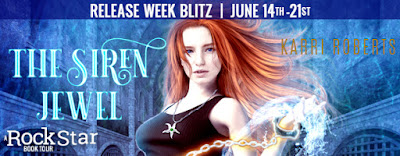
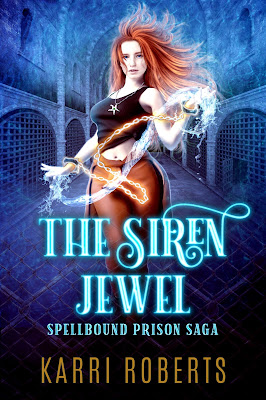
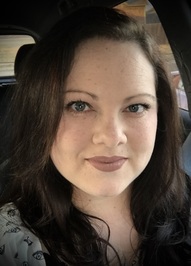
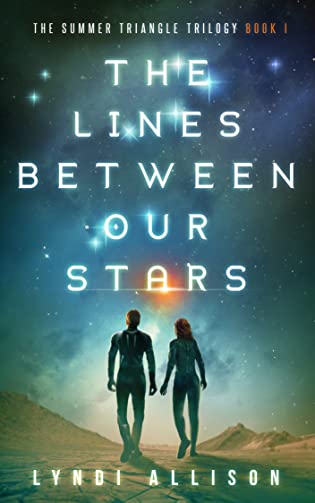 The Lines Between Our Stars (The Summer Triangle Trilogy, #1) by Lyndi Allison
The Lines Between Our Stars (The Summer Triangle Trilogy, #1) by Lyndi Allison 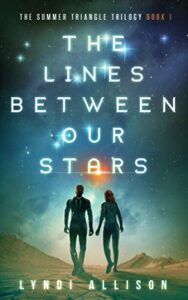


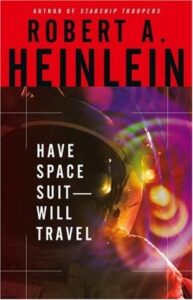



 As a tween, Lyndi walked miles to borrow books from the bookmobile and found quiet places to read them. Now she writes stories for young readers and helps other writers with their writing projects.
As a tween, Lyndi walked miles to borrow books from the bookmobile and found quiet places to read them. Now she writes stories for young readers and helps other writers with their writing projects.